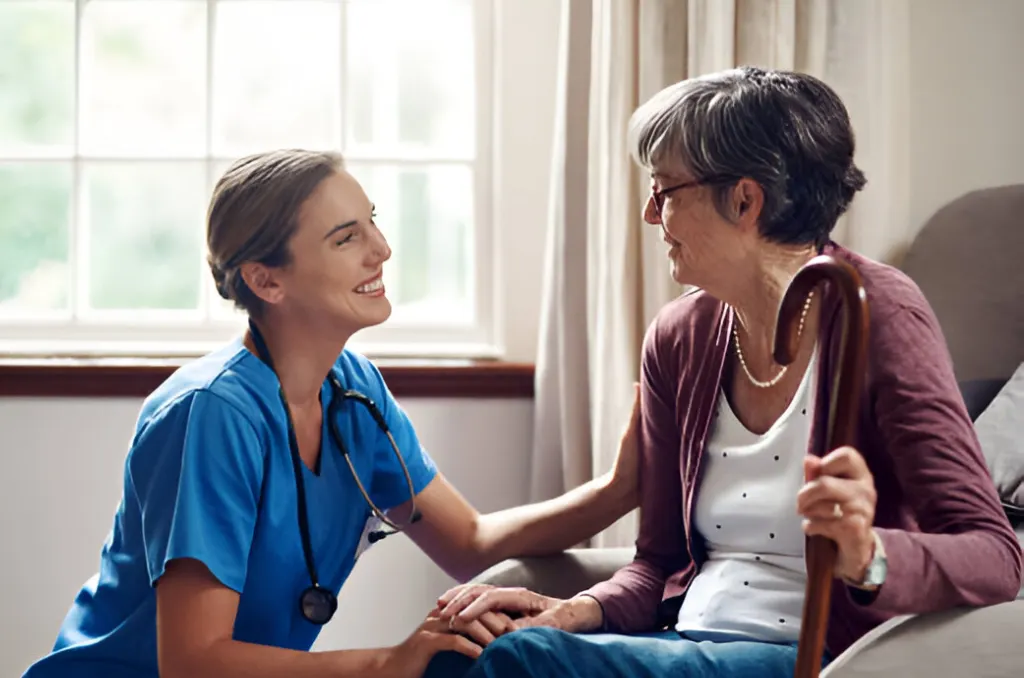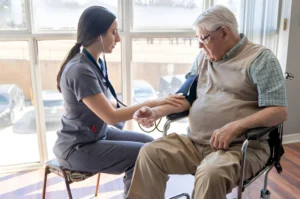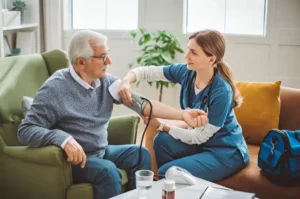A family member can get paid to be a caregiver in New York. Generally, caring for a loved one is one of the most fulfilling yet challenging things to do. In fact, in New York, there are many families that struggle with admitting their loved ones into a facility. Neither do they have the time to take on their caregiving responsibilities themselves.
In such cases, the Consumer Directed Personal Assistance Program (CDPAP) in New York is a saving grace. It offers an opportunity for family members to receive payment while providing care for their loved ones. You can find this program in reputed home health aide agencies. So, in the following blog, we talk about the eligibility requirements to be a family caregiver, the benefits, and how DHCare can personally guide you through it all.
Who Is Eligible to Be a Paid Family Caregiver?
So, if you are wondering whether you can get paid to take care of your loved one, the answer is yes. With New York State’s Medicaid-funded CDPAP program, you can now easily become a paid caregiver. However, there are certain eligibility requirements that both you, as the caregiver, and your loved one, as a care recipient, need to meet.
Eligibility to be a Caregiver
- You must be legally allowed to work in the United States
- You need to be physically capable of providing the care that the patient needs
- You should not be the care recipient’s spouse or legal guardian. Although there are some exceptions
Eligibility to be a Care Recipient
- The care recipient needs to have a Medicaid
- They must require help with their daily living activities such as bathing, dressing, and meal preparation
- They also need to be eligible for long-term home care services
- They should be able to make decisions about their own care. If not, then they should have a designated representative who can make decisions on their behalf.
Who Can Be Paid to Provide Care Under CDPAP?
One of the best parts about the CDPAP is the flexibility it offers. Unlike traditional facilities and programs that assign their own caregivers, with CDPAP people can choose their own. Among them, people who are eligible to provide care under CDPAP include the following:
- Children want to look after their parents
- Grandchildren caring for their grandparents
- Siblings providing care to each other
- Other relatives such as cousins, aunts, and uncles are also eligible
- Other people like friends and neighbors can be chosen
However, the only general exception is that spouses and legal guardians cannot be paid as caregivers under CDPAP. This policy is set in place to ensure that a caregiving relationship stands separately from spousal or legal responsibilities.
How DHCare Helps You Get Started
Figuring out New York’s Medicaid and CDPAP systems can get quite overwhelming. This is where DHCare can save you from all the trouble. We are committed to simplifying the process, from making sure you are informed to offering you support every step of the way.
DHCare provides you assistance by starting with a free eligibility assessment. We evaluate whether your loved one is eligible for CDPAP. Then, we guide you through the next steps related to CDPAP paperwork including every form and requirement. Once the patient has been approved, we will provide you with the exact training and support you need to be prepared for your new caregiving role.
Our support does not end. With DHCare, you will continue to receive assistance even after you have been enrolled in CDPAP.
Benefits of Becoming a Paid Family Caregiver Through DHCare
Choosing to be a paid family caregiver through CDPAP has a wide range of benefits. These include emotional, financial, and practical advantages for both parties. Some of them are:
1. Financial Relief
Typically, it can be tough on family caregivers to manage their jobs while simultaneously caring for their loved ones. In the long term, it can cause a huge financial strain. In such cases, CDPAP will provide financial relief by offering the opportunity to earn and continue taking care of your loved one.
2. Peace of Mind
The biggest plus point of CDPAP, however, is that when a trusted person is taking care of a patient, it will create a stable and comforting environment. This is because, as a caregiver, you will know the patient’s routines, personality, and preferences, unlike anyone else. So, this familiarity will lead to less stress, better health outcomes and be beneficial for both the caregiver and the recipient.
3. Flexible Scheduling
Once you become a caregiver, all your other responsibilities will not come to a stop. Naturally, there would be other things to do. Hence, CDPAP offers you the flexibility to make a caregiving schedule that will work in your and your loved ones’ favour. This flexibility serves as a huge bonus as it will let you maintain balance in your life while making sure the patient is taken care of.
4. Culturally Competent Care
Different households come from different languages, customs, and traditions. These play a huge role in a person’s comfort and well-being. So, if a person within the patient’s family and community looks after them, then there would be a mutually shared cultural environment. This will foster greater trust, better communication, and overall caring services.
Next Steps: Get Paid to Care for Your Loved One with DHCare
Now that you know all there is about where a family member can get paid to be a caregiver in New York, the next step is to take care. Despite you planning to provide care as a family, with DHCare you will not be alone in the process.
We will be with you every step of the way. DHCare will offer you training, administrative support, and guidance to make the whole process smoother and more manageable. So, if you are ready to take the next step, contact us today and book a free consultation and eligibility check. Soon after that, you can enroll in CDPAP and start your caregiving journey. Here is to providing the high-quality care that your loved ones deserve!
FAQ
Can I get paid to care for my parent in New York?
Yes, under New York’s CDPAP program, you can get paid to care for your parent. However, they need to be qualified for Medicaid and need help with their daily living activities. DHCare can help you check your eligibility and guide you through the enrollment process.
How much do CDPAP caregivers get paid?
On average, the hourly rate for CDPAP caregivers is around 14 to 25 dollars per hour. CDPAP caregivers are typically paid on an hourly basis. The specific rate varies depending on paticular factors such as your location, level of service, and hours worked.
Do I need experience to become a caregiver?
You do not need any formal experience or official certification to become a caregiver under CDPAP. The only thing that is important is for you to be physically capable and eligible to work in the US.
What if the person I care for doesn’t have Medicaid?
If your loved one does not have Medicaid, then DHCare will help with the Medicaid application process. Once your loved one is approved for Medicaid, they will become eligible for CDPAP, and you can start getting paid as their caregiver.




